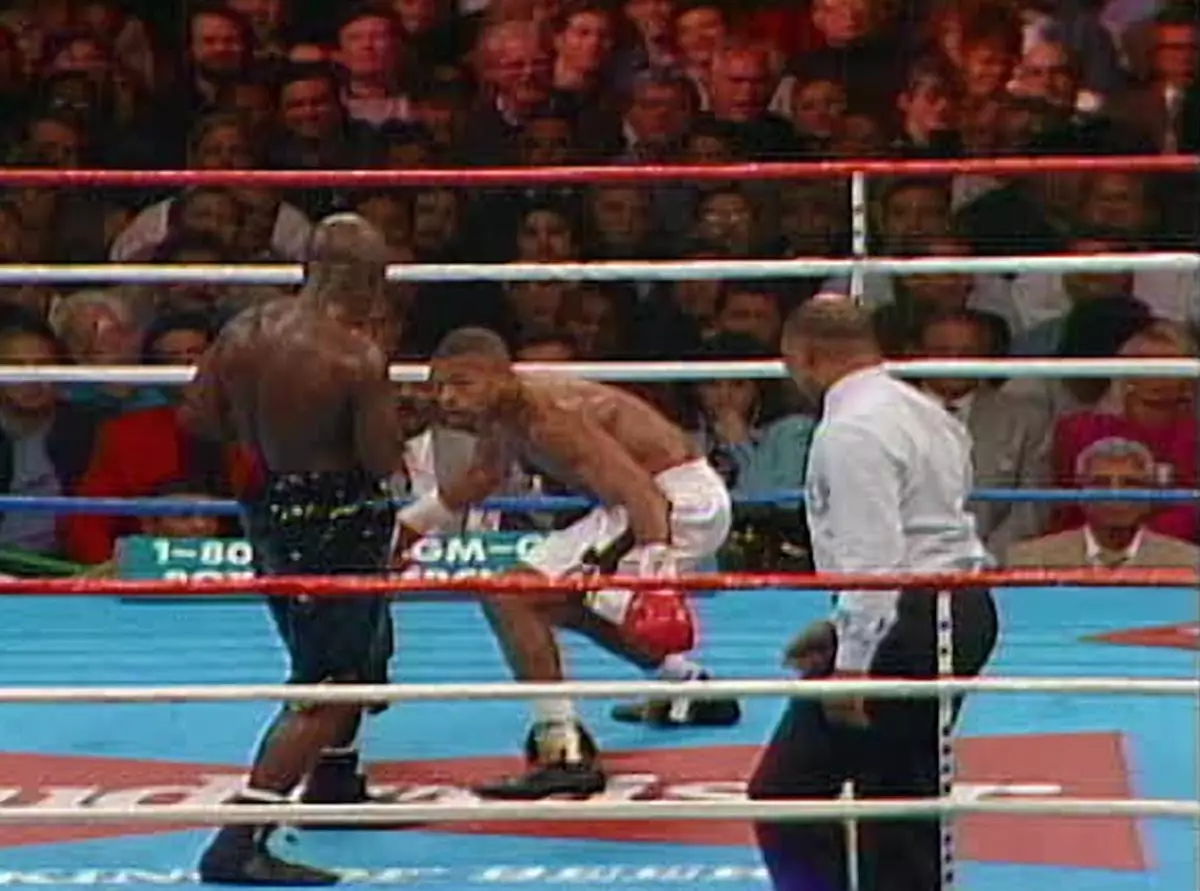In 1994, expectations ran high for the super middleweight clash between Roy Jones Jr. and James Toney, two of boxing’s premier athletes. Labeled “The Uncivil War,” the bout promised intensity and drama as both fighters presented themselves as unbeaten champions. The encounter on that fateful night at MGM Grand in Las Vegas was anticipated to be a fierce contest, one that could potentially lay the groundwork for a legendary trilogy between the two pugilists. Instead, what followed was a compelling narrative of dominance, leaving observers shocked and underscoring the idea that mastery in boxing can sometimes appear profoundly one-sided.
Both fighters were heralded as elite competitors in the boxing sphere. Roy Jones Jr., boasting an impressive record of 26 wins with 23 knockouts, was at the peak of his powers – a gifted athlete renowned for his remarkable speed and uncanny boxing IQ. Meanwhile, James Toney, with an undefeated record of 44 wins and 2 draws, held the IBF super middleweight title, establishing himself as a formidable opponent. The anticipation of the encounter was punctuated by Toney’s adept trash-talking, which raised the stakes and added a layer of personal feud to an already electric atmosphere.
Complicating the pre-fight narrative was Toney’s struggle to make weight, reportedly dropping from a hefty 180 pounds to meet the 168-pound requirement. This struggle hinted at potential vulnerabilities and had fans speculating about how it might affect his performance. As both fighters stepped into the ring, they were not only battling for supremacy but also engaged in a personal rivalry that demanded excellence.
As the first bell rang, it became evident that the expectations of a closely contested fight would soon be dashed. Roy Jones Jr., with blinding speed and a composed demeanor, showcased an astonishing ability to outmaneuver and outclass Toney. The bout unfolded into a masterclass of boxing, where Jones effectively neutralized Toney’s offensive strategy. Jones’s ringside confidence, evident through his trademark sneer and smile, communicated to spectators that he found the fight not just manageable but enjoyable.
Scoring a flash knockdown in the third round further cemented his tactical supremacy. Jones not only outboxed Toney but demonstrated a level of ring intelligence that marked him as a generational talent. This was not merely a battle of fists; it was a cerebral fight that showed the difference between an average boxing match and a display of elite boxing craftsmanship. Toney, weighed down by his own physical struggles, was left chasing shadows while Jones continuously racked up points.
When the final bell rang, the scores – 119-108, 118-109, and 117-110 – painted a clear picture of Jones’s dominance. While the bout lacked the much-anticipated fireworks, it stood out for Jones’s artistic performance that left Toney grounded and frustrated. He visibly carried the weight of the defeat, knowing that his preparation had fallen short on the biggest stage of his career. The absence of a rematch further deepened the narrative. Would a better-prepared Toney have turned the tables? Those tantalizing possibilities lingered, unanswered, in the minds of fans.
In the broader context of their careers, the fight represented a pivotal moment for both champions. Jones continued an impressive unbeaten streak, not facing defeat until 1997, while Toney’s subsequent loss to Montell Griffin underscored the volatility of boxing fortunes. The bout encapsulated what makes boxing unpredictable and captivating; fighters can shine brilliantly one moment and falter the next.
The fight remains an integral chapter in the rich history of boxing, showcasing the skill, perseverance, and intricacies of the sport. While it did not deliver the intense, dramatic showdown many anticipated, it ultimately underscored a significant truth – that greatness can manifest in unexpected ways. Roy Jones Jr. etched his name in the annals of boxing history with this emphatic win, while James Toney’s career trajectory serves as a reminder of the fickle nature of sport.
As boxing continues to evolve and produce new generations of champions, the duel between Jones and Toney stands as a stark reminder of how fights can unfold contrary to expectations. For any true sports aficionado, it is a classic case study of skill, strategy, and the intricate dance of triumph and defeat in the ring.

